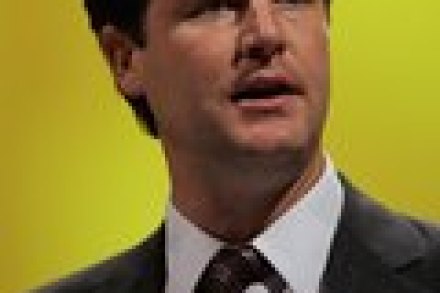Clegg’s idea would give the Lib Dems more of an identity
Nick Clegg’s announcement that if ID cards are introduced he will simply refuse to register is smart politics. First, it prevents Chris Huhne from gaining a monopoly on eye-catching, activist-pleasing ideas in the Lib Dem leadership contest. Second, it shows that Clegg is prepared to exploit the greater license that the leader of the third party has. However, stridently the Tories oppose ID cards it is hard to imagine David Cameron or David Davis indulging in civil disobedience. The key test for any Lib Dem leader is to get their party noticed. This is what Ming Campbell was incapable of doing and why he ultimately failed as leader. This pledge













